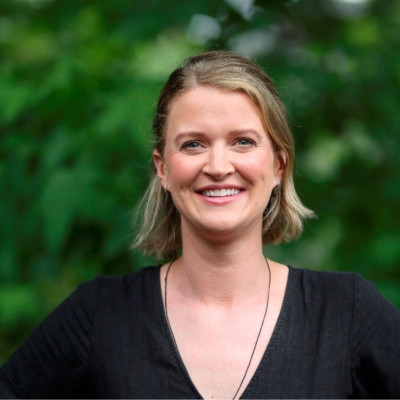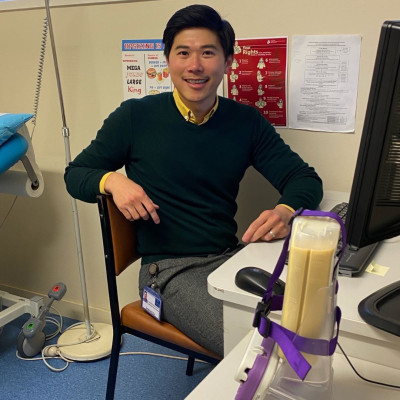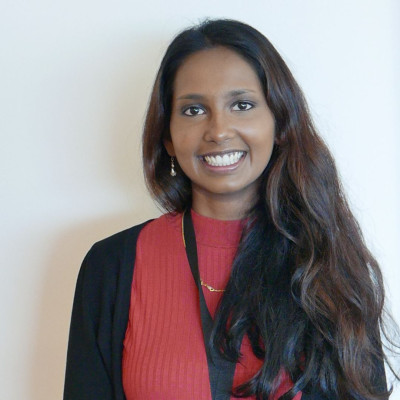In light of Dietitians Week 2024, a few of our dietitians shared their passion for what they do, how they ended up here, and busted myths about the profession.
 What’s involved in your role?
What’s involved in your role?
My regular mahi is to ensure information about nutrition, services, referral criteria and public health programmes are up-to-date and accurate, as well as facilitating multiple nutrition groups. My projects change every year, but at the moment it’s around ensuring that staff and visitors to the hospital are provided with nourishing food and drink options.
How did you get into the field?
I’ve done a variety of roles in my career so far - clinical, private practice and foodservice management - so, this was a new adventure. That’s the amazing thing about being a dietitian; you get the chance to change practice and learn new things.
What’s one thing you want others to know about dietitians?
A lot of people associate dietitians with weight loss, but actually you don’t have to be slim to be healthy. In fact, what’s more important than losing weight is healthy habits like eating enough fruits and veggies and moving your body in ways you enjoy!
 What’s involved in your role?
What’s involved in your role?
I am a Critical Care and Intestinal Failure Dietitian. I manage the nutritional needs of patients when they are critically ill and/or their gut is not able to absorb enough nutrients to sustain life.
What’s the most rewarding part of your job?
Seeing patients recover from their critical illnesses, leave the ICU, and once again be able to eat and drink. We often take these everyday small things for granted.
What’s one thing you want others to know about being a dietitian?
A common myth is that dietitians prescribe restrictive diets, focusing on limitations. In truth, our role encompasses managing a wide range of medical conditions through nutrition, from critical care to chronic diseases and prevention.
Using science-based evidence, we tailor nutritional plans to support health and healing. We aim to improve individuals' relationships with food, making dietary adjustments a positive and sustainable part of their lives, rather than a list of restrictions.
 What’s involved in your role?
What’s involved in your role?
I work as a dietitian for the long-term and chronic health conditions adult community service within a variety of specialties (e.g. malnutrition, oncology, Parkinson’s disease, motor neuron disease, irritable bowel disease and a lot more).
I run a mixture of home visits, clinics, and telehealth assessments where I work one-on-one with clients to help them achieve nutrition-related goals.
What’s the most rewarding part of your job?
Working with clients through a large proportion of their journey in this role is extremely rewarding and a privilege to be a part of. Seeing the positive impact that dietetic education and interventions have first hand is so meaningful. I think it’s a special and unique opportunity to make a positive impact on a client’s journey – whether that’s big or small.
What’s one thing you want others to know about being a dietitian?
We are not here to judge you. I have often heard that we are known as the “food police”, when in reality we have a much more holistic approach to food. Everyone is different and there is no perfect way to eat, or perfect diet to follow.
We strive to make sure you get the right food and nutrients in to be strong and healthy but equally, to make sure that you continue to have all foods in moderation, as it’s important to remain included in all social and cultural aspects of life. We know this impacts overall wellbeing, which is just as important as physical.
 What’s involved in your role?
What’s involved in your role?
I work with children whose kidneys no longer work properly. This affects their body’s ability to filter electrolytes in the blood and so these products build up. By adjusting diet we help reduce the load on the kidneys. Kidney disease also affects children’s growth, so we work with whānau to support good growth and weight gain.
How did you get into the field?
I love food and became a dietitian for that reason. Over the years I realised that I like to work with both acutely unwell children and children long term, so this area of dietetics is the perfect mix. I also secretly love maths and my job involves a lot of maths.
What’s the most rewarding part of your job?
Seeing children get better is incredible – they bounce back so fast and get cheeky with me, and that’s always a great sign.
I still love cooking food and making meals for friends and family. Tweaking favourite family meals so you can still eat what you love is a great part of the job.
 What’s involved in your role?
What’s involved in your role?
I see outpatients with kidney disease who are on dialysis. In my role, I provide advice about diet, food and nutrition that is personalised to the patient. This may involve seeing patients who are malnourished and needing supplement drinks to patients who need support adopting healthier lifestyles with their whānau.
I’ve also just started my PhD at the University of Auckland which is looking at advancing body composition assessment tools used by dietitians.
How did you get into the field?
To train as a dietitian you need a Masters degree, so after I finished that I was fortunate enough to land a job at the hospital. As a student dietitian, you have to do clinical placements at a hospital so, I knew I wanted to work clinically at a hospital early on.
What’s the most rewarding part of your job?
The most rewarding part is building relationships with patients and seeing them through the whole spectrum of their health journey. They truly are grateful for the care you provide and your time.
What’s one thing you want others to know about being a dietitian?
Dietitians are experts in nutrition! We translate the evidence from research into recommendations that fit your lifestyle. We can also prescribe a range of supplements, vitamins and minerals, and some other medications.
← Back to the news